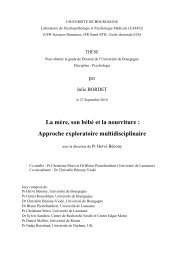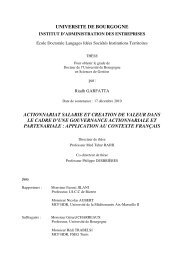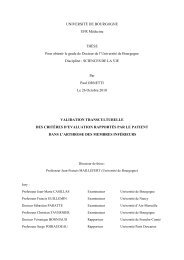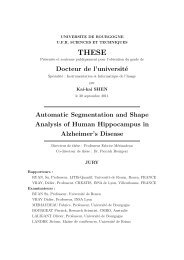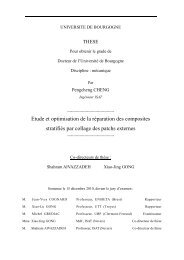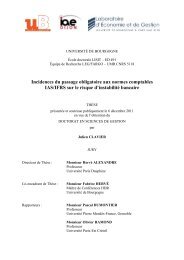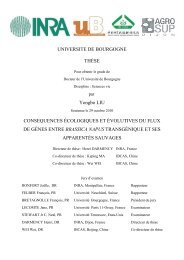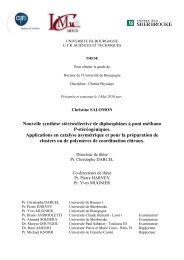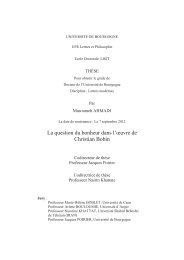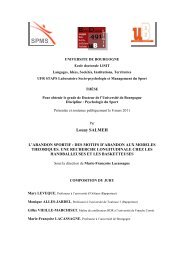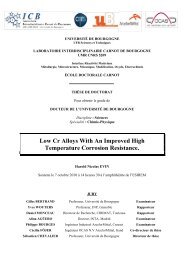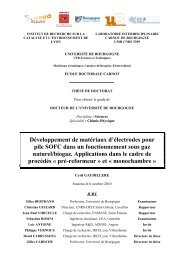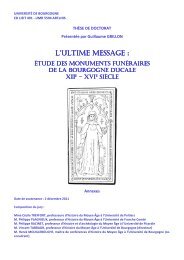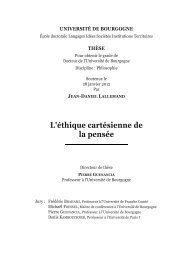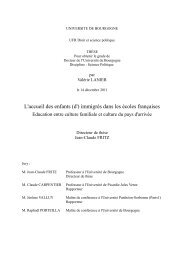Higher education in Asian countries and the role of international ...
Higher education in Asian countries and the role of international ...
Higher education in Asian countries and the role of international ...
You also want an ePaper? Increase the reach of your titles
YUMPU automatically turns print PDFs into web optimized ePapers that Google loves.
2 Review <strong>of</strong> <strong>the</strong> research literature<br />
19<br />
The <strong>role</strong> <strong>of</strong> IGOs has become an important topic <strong>of</strong> discussions <strong>and</strong> debates because <strong>of</strong> <strong>the</strong>ir<br />
enhanced presence <strong>in</strong> <strong>the</strong> global <strong>and</strong> regional political l<strong>and</strong>scape <strong>and</strong> sometimes “controversial”<br />
participation <strong>in</strong> <strong>in</strong>ternational social <strong>and</strong> economic activities. This chang<strong>in</strong>g scenario has been<br />
attract<strong>in</strong>g more <strong>and</strong> more researcher, critics <strong>and</strong> analysts to study different aspects <strong>of</strong> <strong>the</strong> IGOs<br />
that may <strong>in</strong>clude; philosophies, <strong>the</strong>ories, development, structure, functions, efficiency, <strong>role</strong>s,<br />
impact etc. Despite <strong>in</strong>creased <strong>in</strong>terest <strong>of</strong> scholars <strong>in</strong> <strong>the</strong> study <strong>of</strong> IGOs, <strong>the</strong>oretical <strong>and</strong> empirical<br />
aspects, few have looked directly at <strong>the</strong> issue <strong>of</strong> performance <strong>and</strong> <strong>the</strong>ir outcomes (Gutner &<br />
Thompson, 2010). Much <strong>of</strong> <strong>the</strong> research available about <strong>in</strong>tergovernmental organizations has<br />
concentrated on <strong>the</strong>ories, structure <strong>and</strong> <strong>the</strong>ir functions (Archer, 2001), (Koremenos, Lipson, &<br />
Snidal, 2001), (Haack & Mathiason, 2010). Some research is available on <strong>the</strong> <strong>role</strong> <strong>of</strong> IGOs <strong>in</strong><br />
adult <strong>education</strong>, female <strong>education</strong>, <strong>education</strong> for all <strong>and</strong> f<strong>in</strong>anc<strong>in</strong>g <strong>education</strong>.<br />
Intergovernmental organizations‟ prom<strong>in</strong>ent <strong>role</strong> <strong>in</strong> <strong>the</strong> world politics, economics <strong>and</strong> o<strong>the</strong>r<br />
human endeavors has brought <strong>the</strong>m <strong>in</strong> <strong>the</strong> limelight consequently IGOs have become as an<br />
emerg<strong>in</strong>g field <strong>of</strong> study <strong>in</strong> <strong>the</strong> doma<strong>in</strong>s <strong>of</strong> economics, political science <strong>and</strong> sociology at academic<br />
level. The exist<strong>in</strong>g pool <strong>of</strong> research on IGOs consists <strong>of</strong> a wide variety <strong>of</strong> scientific studies that<br />
covers different aspects: structure, organization, functions etc. IGOs are not homogenous<br />
entities: <strong>the</strong>y have different philosophies, charters, structures, approaches, <strong>and</strong> reasons <strong>of</strong><br />
existence. So <strong>the</strong>re exists a variety <strong>of</strong> organization on <strong>the</strong> world horizon. In today‟s globalized<br />
world it is difficult to imag<strong>in</strong>e an <strong>in</strong>ternational system without <strong>in</strong>ternational organizations<br />
because <strong>the</strong>se <strong>in</strong>stitutions have become an <strong>in</strong>dispensable part <strong>of</strong> global governance (Frey &<br />
Stutzer, 2006).<br />
S<strong>in</strong>ce <strong>the</strong> emergence <strong>of</strong> IGOs as a field <strong>of</strong> study, <strong>the</strong> sharpest debate among researchers has been<br />
<strong>the</strong>oretical: Do <strong>in</strong>ternational <strong>in</strong>stitutions really matter? But from this debate an important <strong>in</strong>quiry<br />
is miss<strong>in</strong>g: how <strong>the</strong>se <strong>in</strong>stitutions actually work (Koremenos, Lipson, & Snidal, 2001). The<br />
answer <strong>of</strong> <strong>the</strong>se questions depends on <strong>the</strong> response <strong>of</strong> ano<strong>the</strong>r very basic, important <strong>and</strong> fact<br />
f<strong>in</strong>d<strong>in</strong>g issue: What is <strong>the</strong> <strong>role</strong> <strong>of</strong> IGOs <strong>in</strong> <strong>the</strong> societies? Without study<strong>in</strong>g IGOs‟ <strong>role</strong>, it is<br />
mean<strong>in</strong>gless to go for <strong>in</strong>quiries perta<strong>in</strong><strong>in</strong>g to <strong>the</strong>ir existence <strong>and</strong> function<strong>in</strong>g. In an <strong>in</strong>ternational<br />
system both states <strong>and</strong> IGOs are active actors <strong>in</strong> <strong>the</strong> process <strong>of</strong> development <strong>of</strong> higher <strong>education</strong><br />
so <strong>the</strong> successful <strong>role</strong> <strong>of</strong> such <strong>in</strong>ternational bodies depends upon multiple factors: What are <strong>the</strong>



